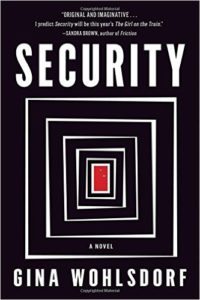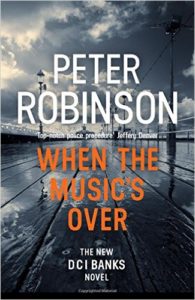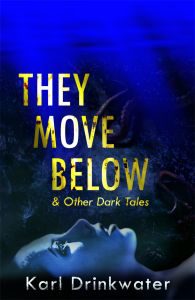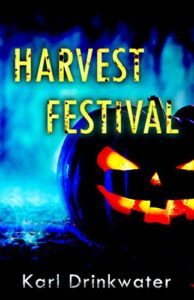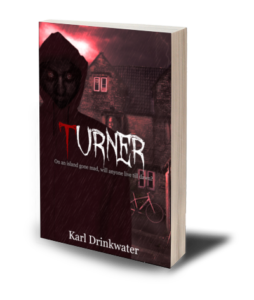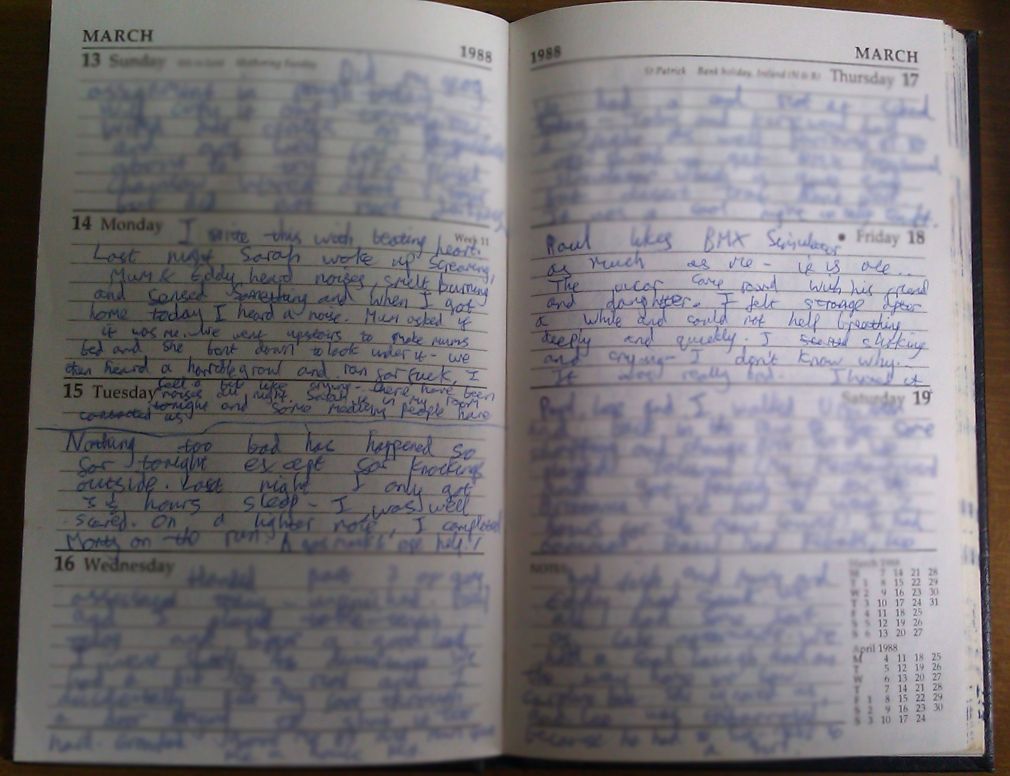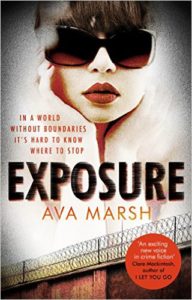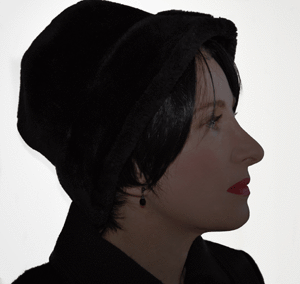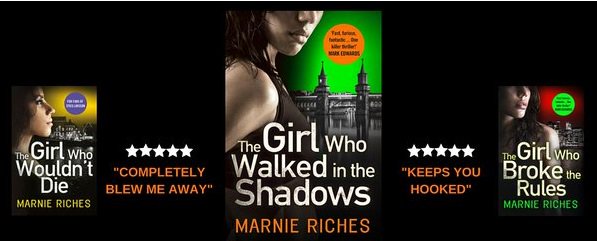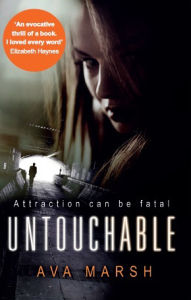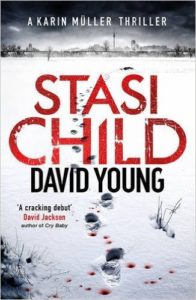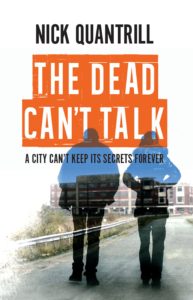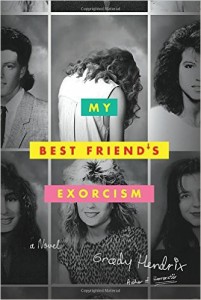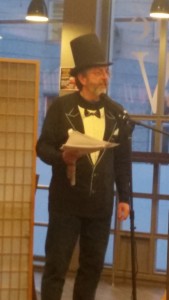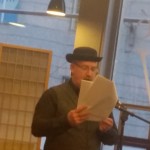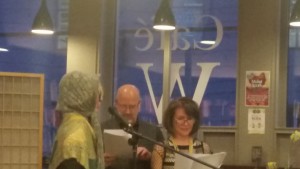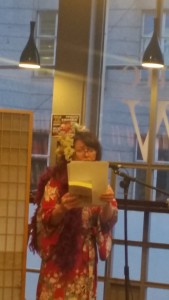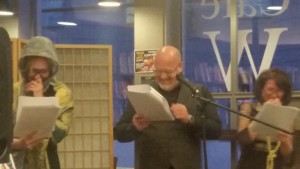In Conversation: Douglas Skelton & Theresa Talbot
Every once in a while my job lands me in an office where I can actually get to attend some book events of an evening. Lately I have found myself lurking on the fringes of Glasgow launch events and, if you go to a launch event in Glasgow, there is a pretty good chance of bumping into Douglas Skelton or Theresa Talbot (though God forbid you get them both at the same time).
I know that not everybody can make it along to book launches (and even fewer get to the Scottish ones) so it is entirely possible you may not have had the chance to meet Douglas or Theresa in person. It is an experience like no other. In a good way obviously!
So with slight apprehension as to what I may unleash I invited them to join me for a chat – and there was only one place I could start…
 G – Mr Skelton, I cannot help but notice you have been nominated onto the longlist for the McIlvanney prize at this year’s Bloody Scotland festival. Congratulations! How does it feel now that you have had a day or two to let the news sink in? And I am also keen to know how you found out?
G – Mr Skelton, I cannot help but notice you have been nominated onto the longlist for the McIlvanney prize at this year’s Bloody Scotland festival. Congratulations! How does it feel now that you have had a day or two to let the news sink in? And I am also keen to know how you found out?
DS – Oh, you noticed that, did you? I haven’t really talked about it much (coughs and has the decency to look ashamed).
The simple truth about it is that I am hyper chuffed by the nod and I think that’s a feeling that will remain for quite some time. I mean – look at the names on that list. Ian Rankin, Val McDermid, James Oswald, Stuart McBride, Doug Johnstone, Lin Anderson, Lesley Kelly, ES Thomson, Chris Brookmyre! The words “bloody” and”hell” spring to mind.
I found out a couple of days before through Luath Press. I was sworn to absolute secrecy, on pain of beng tied to a chair and force fed a diet of reality TV. Naturally, I kept my lips buttoned, zipped and sewn.
TT – Douglas – are you really on the longlist?? OMG, you never mentioned it! (Listen whilst that Skelton chap’s away polishing his halo, can I say he’s never stopped talking about it! )
Seriously….well done, you deserve to be up there with the best of them.
DS – (Blushes)
TT – Oh behave! Has anything changed since the longlist was announced? D’you feel any different…like a proper famous author now?
DS – Well, no. As I’ve said, I was the only name I had to Google when I saw the list. It’s a great thing – and I am honoured and grateful – but I don’t want to run away with myself. I certainly do hope it will open up new avenues (new worlds, new civilisations…) and yes, I feel a positive change in certain perceptions but in reality, I’ve got another book to write and I’m stuck in the mid-story doldrums. As usual.
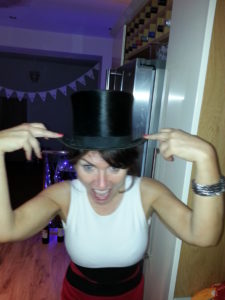 TT – You asked me to Google you once and I thought you were being smutty! I’m sure being nominated for this award will be such a positive thing for you.
TT – You asked me to Google you once and I thought you were being smutty! I’m sure being nominated for this award will be such a positive thing for you.
How d’you get out of this mid-story doldrums you’re in…I’m at the end of my tether with my next one at the moment. I’m almost finished..BUT…It’s as though I have a big bag of Christmas lights which need untangled and the turkey’s already burning in the oven. Does that even make sense??
DS – I WAS being smutty. Was very disappointed when you didn’t. But then I should be used to such disappointment by now.
As for the Christmas lights/Turkey analogy – makes perfect sense. The only way out of it is to write through it. You know what you’re doing isn’t anywhere near right but getting to the end of that first draft is the primary aim. Rewrites can be done. New passages can be added. Bad ones can be cut. Everything can be fixed.
And if I ask another young lady to Google me, so might I.
G – Turkey and Christmas Lights in July! I knew I should have checked my emails more closely today….
Theresa – tell me about Bloody Scotland, I opened the brochure and you were the first familiar face I spotted.
DS – Me, too!
Helluva fright.
TT – Bloody Scotland…I’m thrilled – nae thrice thrilled to be part of the festival this year. When I was asked to take part I have to admit to looking behind me to see who the organiser was talking to! I’m part of a panel of new crime writers made up of Abir Mukherjee, Brooke Magnanti, Martin Cathcart Froden and Me…with the lovely Alex Gray chairing. We’ll be at the Golden Lion Wallace on Saturday 10th September at 2pm…tickets still available! (Which you can book by clicking HERE).
Bloody Scotland is still a relatively new literary festival yet is up there with the big boys. It’s such an exciting, vibrant event to be part of. I went last year as a punter – I also attended a crime writing masterclass and now I’m back this year as a Baby-Crime-Writer in Training! Fantastic.
 DS – It is a fabulous event and Scotland should be proud of it. I think this is my fourth year up there and it’s always immense fun.
DS – It is a fabulous event and Scotland should be proud of it. I think this is my fourth year up there and it’s always immense fun.
G – Bloody Scotland has been the highlight of all the bookish events I have made it to thus far, this year will be my third – I may even pluck up the courage to actually TALK to some authors.
So festivals aside, am I allowed to ask what you are both working on at present? Theresa seems to be a full time wedding guest and Douglas is forever on tour!!!
DS – I’m working on another Dominic Queste book, Tag – You’re Dead. The first, The Dead Don’t Boogie, is due out in paperback in September, although currently available on Kindle.
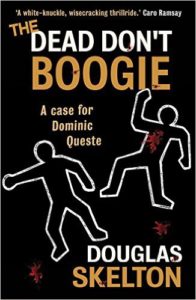 And yes, I have been on tour with the Crime Factor boy band of Neil Broadfoot, Gordon ‘G.J.’ Brown, Mark Leggatt and chair Peter Burnett.
And yes, I have been on tour with the Crime Factor boy band of Neil Broadfoot, Gordon ‘G.J.’ Brown, Mark Leggatt and chair Peter Burnett.
TT – At the moment I’m working my way through a box of Terry’s All Gold.
As soon as news got out that I had not one but TWO decent dresses I was in big demand for all sorts of social occasions, but I seem to have found my niche at weddings. I turn up on time, tell the bride how beautiful she is and basically I know how to work a room. I pass the dresses of as classic vintage, but the truth is they’re just really really old. Thankfully as a writer I don’t make much money so my meager diet ensures even my oldest clothes still fit me.
Other than that I’m slogging away (between bouts of Facebook) on Resurrection, which is a sort of follow up to Penance. I often call Douglas for advice as I suffer from writer’s block…he’s very good that way and listens to my tales of woe as he settles back on his wing-backed leather arm-chair sipping his 20 year old malt that his butler has just poured. I know almost all of his staff by name now and they’re organising food parcels for me. I’m blessed to have Douglas as a mentor – however he drew the line at me joining his Boy Band!
DS – I can vouch for the fact that Theresa can work the room. I have witnessed this first hand.
As for knowing my staff by name, pish tosh. There are so many of them here at Skelton Manor than even I don’t know them!
Theresa was invited to join the boy band but she failed the medical.
TT – I’ve taken something for that condition and would now like to re-apply for the boy-band!
G – Okay, dangerous territory here so am nipping this in the bud. However, just to prove you don’t always wind each other up how about I ask Theresa to say something nice about Douglas (or his books if that’s easier)? And Douglas you have to do the same for Theresa.
Neither of you have to be nice to me, I work for the Banks – my social standing is ruined.
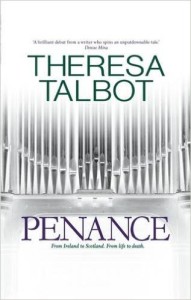 TT – Say something nice about Douglas? Seriously…oh go on then…seriously…Douglas has helped me more than he’ll ever know in my quest to be a crime writer. He’s always there to offer sound advice and keep me calm. He’s been so encouraging and he’s just a thoroughly lovely all round nice guy. Honest to God!
TT – Say something nice about Douglas? Seriously…oh go on then…seriously…Douglas has helped me more than he’ll ever know in my quest to be a crime writer. He’s always there to offer sound advice and keep me calm. He’s been so encouraging and he’s just a thoroughly lovely all round nice guy. Honest to God!
His books are bloody good too..but don’t take my word for it, check out the Davie McCall series and The Dead Don’t Boogie. BTW Douglas doesn’t boogie either, but I’m working on that!
DS – So, Theresa. Or maybe Gordon, I don’t know now. No, Theresa. I’ve only known her for a relatively short period of time but already feel as if I’ve known her all my life. I loved her book, Penance, and am looking forward to her new one immensely. Her new one isn’t called Immensely, by the way. She is also a bundle of energy and has an enthusiasm that is infectious.
And if anyone can make me boogie, it’s her.
G – I know how hard that last bit was for you both so I would just like to offer my most sincere thanks – this is why I love attending events with you two, it is always such great fun.
Douglas Skelton has published 11 books on true crime and history. He has been a bank clerk, tax officer, shelf stacker, meat porter, taxi driver (for two days), wine waiter (for two hours), reporter, investigator and editor. His first thriller BLOOD CITY was published by Luath Press in 2013. The gritty thriller was the first in a quartet set on the tough streets of Glasgow from 1980 onwards. It was followed by CROW BAIT, DEVIL’S KNOCK and finally OPEN WOUNDS, which has been longlisted for the first McIlvanney Prize for Scottish Crime Book of the Year.
You can find Douglas’s books on the following link:
Theresa Talbot is a freelance writer, journalist and radio presenter, perhaps best known as the voice of Traffic and Travel on BBC Radio Scotland and as the host of The Beechgrove Potting Shed. Prior to working with the BBC she was with Radio Clyde and the AA Roadwatch team. Theresa worked in various roles before entering the media as an assistant in children’s homes, a Pepsi Challenge girl and a library assistant. She ended up at the BBC because of an eavesdropped conversation on a no.66 bus in Glasgow. Her passions include rescuing chickens, gardening, music and yoga.
Theresa’s books can be found here:

